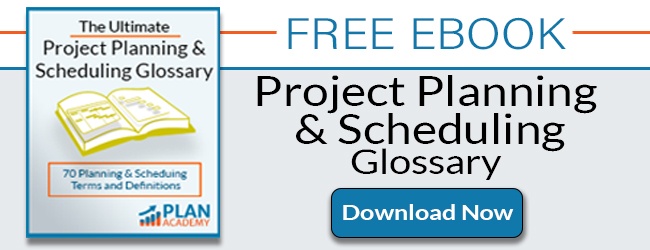Contractors use many different types of contracts but predominantly lump sum and unit price type of contracts. However, I have seen contracts that are lacking or missing essential elements required for your protection and the customer’s as well. This article is written to inform you about the very basics plus a few more items that must form part of every construction contract.
Basic Elements of a Construction Contract
There are some items that must be present on every contract regardless of the type and composition. Although there are standards like AIA and ConsensusDocs that provide standard contracts for you to use, there are other instances that you might need to have your own tailored construction contract(s). A contract must contain an offer of a product or service in exchange of some compensation or monetary value tied to it. The other very basic element of a construction contract is the time on which the service or product needs to be completed.
Structure of Construction Contracts
The first section of every construction contract identifies who the individual is, the corporation of entity that provides the services and who is the buyer or company/individual receiving the services. These sections shall contain legal names and dates on which the agreement takes place or when it starts. The contract must also specify location of the parties and a description of what services are offered. The next sections will reference the scope of work or obligations of each contracting party and their responsibilities, related to the specialized product or service being purchased.
Legal and Related Terms
The contract should also include the means and methods that both parties need to follow if any claims arise and how to manage those claims. An arbitration process is usually the preferred method of solving disputes before escalating those to the local law entity or AHJ. It is critical to specify the terms on which disputes can be presented to the other party. Be sure to review and understand the indemnity agreement section. This section provides the appropriate language, so the contractor pays to protect and defend the owner from and against insurance claims for bodily injury and property claims.
Warranties and Terms
Once the project gets completed, you will want to offer some sort of warranty that could be related to labor, material or both. The clear definition of workmanship warranties and material is specified under this section and when the start date for those warranties will take effect. Sometimes, the owner wants to carve out scope for them to hire to a third party, so those tasks shall be spelled out in the scope of work. Make sure to establish your warranty start date as the same date you receive the substantial completion and continues for a define period. Warranties must include manufacturer’s warranties for equipment, systems, and materials. Make sure to clearly define warranty items from punch list and to your benefit add the end date of the warranty.
Payment and Reimbursements
Construction contracts many times fails to identify what services or costs are to be reimbursed, causing issues and disputes related to costs. Make sure there is a summary of items that you will be entitled to reimbursements and how those costs are processed and billed. The payment recurrences are part of this section, providing information as to how frequent and how fast you will get paid. It is important to include description and information required to process the invoice including any supporting evidence, such as timesheets and invoices; if a T&E type of contract is used. Payments can be structured after material is received on site, installed or sometimes even when the order is placed. Another common language inserted in some construction contracts is the one allowing contractors to recover overhead and profit during change order requests.
Construction Scope
Probably the most important section, the vaguest and overlooked section of them all. This section needs to be more than what your estimator is providing. Take the opportunity to ask and get confirmation by the Owner that the drawings and documents provided are accurate, so you are protected against potential scope gaps. The scope is a critical section that might need several pages or perhaps a separate document describing the:
- Services
- Acceptance criteria
- Specifications
- Requirements and substitutions;
… if these are acceptable.
This section will dictate the work being performed and how the work will be completed by the contractor. A clearly defined scope is critical for a dispute-free project and will facilitate payment processing and acceptance of services. This portion shall include the order of precedent of all construction documents forming part of the construction contracts and how they need to be analyzed in case of any discrepancies.
Time in Construction Contracts
Time is of the essence. Everybody uses that phrase, but do you know what it means to your contract/project? It means that the time is defined from start to finish, and how time extensions and changes that occur on the project that can potentially add time are to be processed and documented. The project must define a start date, end date, calendar days or work days and what are the requirements to get the project completed on time. This section also needs to include language as to what are potential reasons for requesting time extensions.
Unforeseen Events
Force majeure items and excusable events are very important items required on every construction contract. This is where you protect your interest from unforeseen situations that you don’t have any control over. Strikes, storms, fires and changes in law are all items that you can’t control that might affect your performance during the project execution, resulting in significant delays that you might not be able to recover effectively. The force majeure section at a minimum shall describe the following:
- Next steps when an event occurs
- Who can suspend performance or stop the work
- What happens when it’s an extended period of time
- How to cure the problem
- Reasons to terminate the contract
Schedule
Some people tend to think that this goes into the time section, but this is really a section on which you will help yourself. Explaining the time it takes to get the project completed and how long it takes to complete significant milestones, are critical to your payment terms. The schedule is a powerful tool that can help defend your project if the project is delayed or if your completion time is affected. The schedule section in the contract should include specific language about how to recover delay damages. The schedule should be used to demonstrate a breach in the contract and how those delays affected the schedule.
Each construction contacts vary based on industry and project, what do you make sure to have in your contracts? Leave a comment below.


